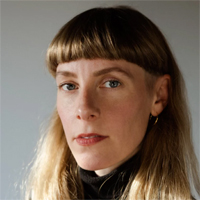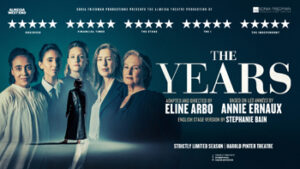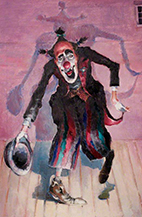Have you ever watched a play, or a film, noting an impassioned performance, and thought ‘How can the actors take this seriously? How can they say those lines and keep a straight face?’
 If so, you’re not the only one. Indeed, acclaimed Norwegian theatre director Eline Arbo has said:
If so, you’re not the only one. Indeed, acclaimed Norwegian theatre director Eline Arbo has said:
I’ve always felt that theatre is very fake. You have grownup people pretending to die in front of you, and it’s ridiculous.
That’s the voice of one of todays’ most acclaimed theatre practitioners, so if even she is aware of this, it’s not surprising that we are. Yet Arbo has created some spellbinding theatre, so she is clearly able to stride across that paradox and believe, firmly, in the transformative power of theatre. As she also says. ‘it’s an exercise in empathy, and so amazing and important.’
The Years
 Arbo has come to the attention of the British theatre world following the transfer of her adaptation of Annie Ernaux’s The Years, first produced at the Internationaal Theater Amsterdam, where she is artistic director. The reworked London production last summer had a British cast and attracted particular notoriety for its abortion scene. Several audience members fainted, or had to leave – mostly men, apparently.
Arbo has come to the attention of the British theatre world following the transfer of her adaptation of Annie Ernaux’s The Years, first produced at the Internationaal Theater Amsterdam, where she is artistic director. The reworked London production last summer had a British cast and attracted particular notoriety for its abortion scene. Several audience members fainted, or had to leave – mostly men, apparently.
In her five star review of the production, Arifa Akbar made significant claims for it as an act of transformative theatre:
Running at near two hours straight though, you feel the passage of time, both in this protagonist’s life and your own. It leaves theoretical questions around history, memory and love in the mind, long after its end.
On the shoulders of Ivo van Hove
Arbo’s tenure at the Internationaal Theater Amsterdam follows that of Ivo van Hove, whose work has influenced theatrical practice across Europe. She is very conscious of the reputation of the man she has replaced at the helm, but is also keen to do her own thing, produce her own brand of theatre. She talks interestingly about her work in these two article, one from The Guardian and one from The London Magazine. She sees the importance of Ernaux’s work, blending personal history with historical and political:
…it is about a woman’s life, but it is also about a changing Europe.
Priceless Theatrical Memories
At the end of this piece, discussing The Years with the five actors playing the central role, they consider their own formative highlight performances. It’s the great Our Friends in the North for Gina McKee, for example, while Deborah Findlay was in the first production of Caryl Churchill’s seminal play Top Girls. The youngest member of the cast, Harmony Rose-Bremner, is moved because some of these performances were ones she saw growing up, and were vital to her in a different way:
I kind of got a bit emotional hearing you speak, because those roles that you mentioned were like growing up for me.
 That made me wonder what the standout transformative performances had been for me over the years of theatre-watching. Certainly Michael Gambon and Antony Sher as Lear and the Fool in King Lear. Antony Sher again as Richard III. David Threlfall in Not Quite Jerusalem. Anthony Hopkins in Pravda (but not his awful Lear or Antony in the same Shakespeare series at the National Theatre). Fiona Shaw in The Good Person of Szechwan. Mark Rylance, of course, in Jerusalem and as Cromwell in the TV adaptation of Wolf Hall.
That made me wonder what the standout transformative performances had been for me over the years of theatre-watching. Certainly Michael Gambon and Antony Sher as Lear and the Fool in King Lear. Antony Sher again as Richard III. David Threlfall in Not Quite Jerusalem. Anthony Hopkins in Pravda (but not his awful Lear or Antony in the same Shakespeare series at the National Theatre). Fiona Shaw in The Good Person of Szechwan. Mark Rylance, of course, in Jerusalem and as Cromwell in the TV adaptation of Wolf Hall.
And you?